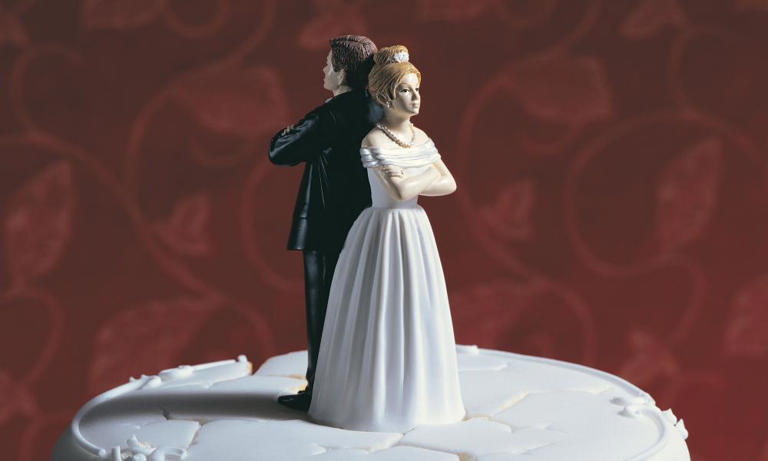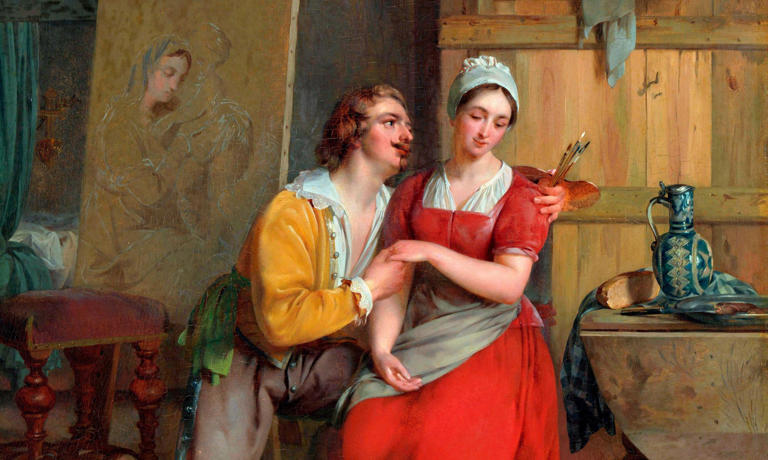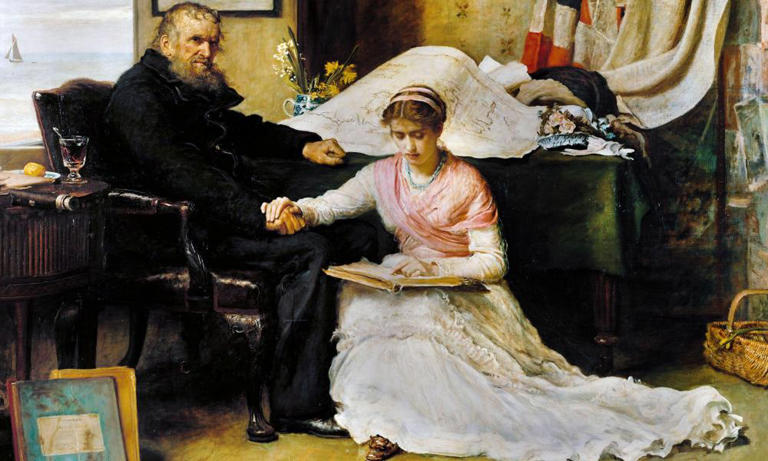
Photograph: Mode Images Limited/Alamy:© Provided by The Guardian
Marriage is an inherently misogynistic institution – so why do women agree to it?
“And still I wonder how much harder it would be to get straight women to accept the reality of marriage if they were not first presented with the fantasy of a wedding,” Jia Tolentino wrote in her superb essay, I Thee Dread. Just shy of 30 at the time of Trick Mirror’s release, Tolentino describes the endless parade of weddings that have begun to fill her weekends as, one after the other, her friends line up to get married.
This being the US, where college students are more likely to attend institutions out of state before shifting to other cities to work, the wedding circus stops in towns all over the country. That’s a lot of flying, and a lot of hotels. The price of witnessing your friends pledge their young lives to an institution that until only recently gave men the legal right to rape their wives (and still does in some US states, thanks to legal loopholes) does not come cheap.
But this is par for the course for the wedding industrial complex, where the average cost of throwing a knees-up to celebrate asking the government to legitimise your relationship is roughly A$36,000 (and that’s before interest). According to a 2022 survey conducted by the Australian government’s Money Smart website, while 82% of couples use all or part of their savings to pay for their wedding, 60% of couples take out a loan. Almost one-fifth of couples pay for their wedding using their credit card – and given that the median length of time between marriage and separation in Australia is roughly eight years, there’s a fair likelihood a lot of these people will still be paying off their weddings long after they’ve finalised their divorce.
Marriage is not now and never has been designed with women’s happiness in mind – and yet we’re told that without it, we will be miserable. As any sociologist can tell you, it’s men who benefit from marriage: they live longer, they are generally healthier and happier, and their economic prospects improve. On the other hand, studies have shown that married women die earlier. And marriage alone isn’t a guarantee of happiness for women – they are happy if they have a happy marriage.
When it comes to divorce, the financial risk to women is more perilous: ASX research based on numerous studies has shown that women’s incomes drop by around 21-30% after divorce, an economic hit that it takes an average of six years to recover from. The same is not true for men, their income briefly dipping by about 5% before recovering. We can assume one of the reasons for this is the cost of raising children, both in terms of economic outlay and deprivation of economic opportunity.
Criticising marriage, the so-called “bedrock” of western civilisation, is perceived to be a criticism of those who do it. That can feel bad for the person on the receiving end, and anything that makes someone feel bad must be wrong. But we should be willing to engage with critiques of our institutions, particularly those that have the kind of lengthy history of oppression that marriage boasts.
While I know it doesn’t feel great to have your life choices questioned, it arguably feels nowhere near as terrible as being bride-napped (a common practice among the Visigoths, which led to the tradition of the best man, who was chosen for the role because he was the best fighter, and relied on to ward off any family members who attempted to reclaim their stolen daughter). Or being put in a halter and sold at market to the highest bidder (an option for men in the middle ages wanting to rid themselves of wives they no longer wanted).
Or being committed to an asylum (an option made available later on, when all men had to do was appeal to the authority of two male doctors to condemn their wives and daughters to die in Victorian-era sanatoriums). Or being denied the right to own property, even that which you inherited (because the law of coverture stated women had no identity and thus existed under the banner of male ownership). Or being unable to leave for fear of losing access to your children (because coverture also dictated they were the property of the father). Or a lifetime of being ridiculed, mocked and even criminalised for being unmarried (as was the case for a good portion of women executed as witches during the height of the European witch trials).
With all these facts about the history of marriage freely available, why are women still buying into the myth that it is romantic, or that it will supposedly bring us lifelong bliss? This is the question at the heart of my new book, I Don’t, an excoriating critique of marriage and the lies that are told to keep women enlisting into its service. From the days of empire building and daughter trading, to the advent of engagement rings and the growth of the wedding industry, to the mid-century myth of the “happy housewife”, everything we’ve been told about marriage, from start to finish, is a diabolical deception.
When you peel back the layers of history and propaganda, it’s impossible not to want to completely destroy this inherently misogynistic institution. I think of marriage as being like the colourfully decorated wagon the children in Chitty Chitty Bang Bang are lured into by the royally appointed Child Catcher: once women are safely ensconced in it, the bells and whistles adorning the exterior fall away to reveal nothing but a cage.
Despite this, there are scores of articles and books being released pondering the question of how to fix marriage. How can it be improved, how can we reimagine it and so on and so forth. The establishment of same-sex marriage rights is considered to be a win for progressive politics, but there’s nothing radical about joining a club that worked so hard to deny you entry. Queer people getting married doesn’t radicalise marriage. On the contrary, it normifies queer people, giving us conservative status within a regressive framework.
Marriage is an unsalvageable lie, designed to keep women in service to patriarchy and away from realising our full potential. We should reject it entirely, and refuse on principle to willingly add our names to a list built primarily on the backs of women who had no choice, no rights and no freedom. The fact that many women still can’t make this choice freely – even Tolentino wound up married, because it was the only way she and her partner could access each other’s healthcare benefits – says everything. Simply put: if the government is bribing you to do something, it’s rarely in your best interest.
To paraphrase Mae West, they keep telling me marriage is a great institution – but I ain’t ready for an institution. What I’m ready for is a revolution.
Story by Clementine Ford:The Guardian:






